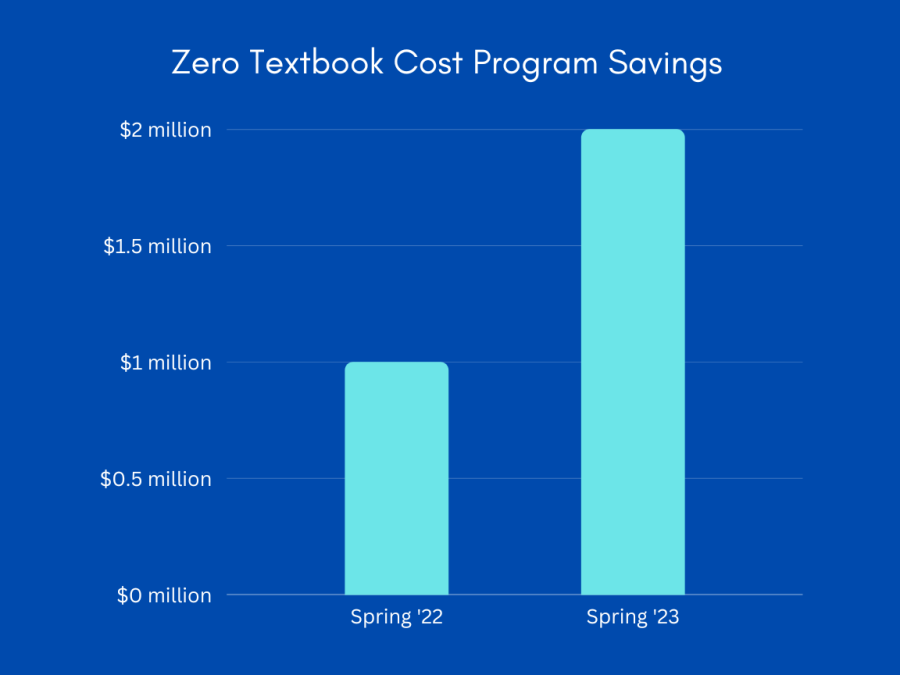Zero Textbook Cost program continues to grow and receive positive feedback
Canva Image made by Asyah Zamani
The Zero Textbook Cost program continues to progress since the fall 2021 semester. Students have saved $1 million from not buying books in the spring 2022 semester and now have saved $2 million in the spring 2023 semester.
The Zero Textbook Cost program has continued to grow since it first started in the fall 2021 semester.
Cosumnes River College President Ed Bush said 62% of full-time faculty are utilizing the program as well as 40% of part-time faculty.
“Currently, 700 plus sections of our institution being zero textbooks, that’s over half of all of our sections at the college, so that means the majority of our classes is a zero textbook class,” Bush said. “The hope is that we build it in a way for it to be sustainable for it to last.”
Bush said data showed that students perform slightly better in courses where there’s a zero textbook option than when they had to buy a textbook for the class.
He also added that Librarian Andi Adkins-Pogue set up the program to work with faculty.
“It was really because of her efforts that we were able to make the progress that we’re doing,” Bush said. “This really is a college-wide effort. Every faculty member that decides to convert, that’s a tremendous amount of work, so they deserve credit too.”
Adkins-Pogue said students saved $2 million from not buying books this spring semester and that 58% of courses overall were zero textbook cost for students.
“It’s doing great,” Adkins-Pogue said. “We have increased the number of zero textbook cost sections dramatically from when we started this project in fall of 2021.”
Adkins-Pogue said students were overwhelmingly positive about the zero textbook cost initiative.
“We had students who said that by not having to pay for textbooks, they were able to use that money to buy critical need things, like groceries and child care and gasoline for their cars,” Adkins-Pogue said. “I think the faculty that have adopted open educational resources are more likely to continue using them.”
Adkins-Pogue said many students experience challenges when they’re beginning college.
“We have many students who are relying on financial aid or other support services like our EOPS (Extended Opportunity Programs and Services) program, in which they are provided some funding to purchase textbooks and educational materials, but that funding doesn’t go to the student until way after the semester has started,” Adkins-Pogue said.
Adkins-Pogue said students who are relying on that additional funding to be able to purchase this material are already at a disadvantage when the course starts because the instructor is expecting students to have all of their course materials in hand and ready to start learning.
“What we have found is that often students in that situation try to get by those first couple of weeks without having access to the material or the faculty might try to help them in some way providing some of that material in the first few weeks,” Adkins-Pogue said. “The reason that we’re doing this is try to eliminate that stress, to eliminate that cost barrier and to allow all of our students to come to class.”


Barbara S Illowsky • Apr 14, 2023 at 2:26 pm
Excellent work, CRC! Your success is amazing and you are an inspiration to the rest of us!